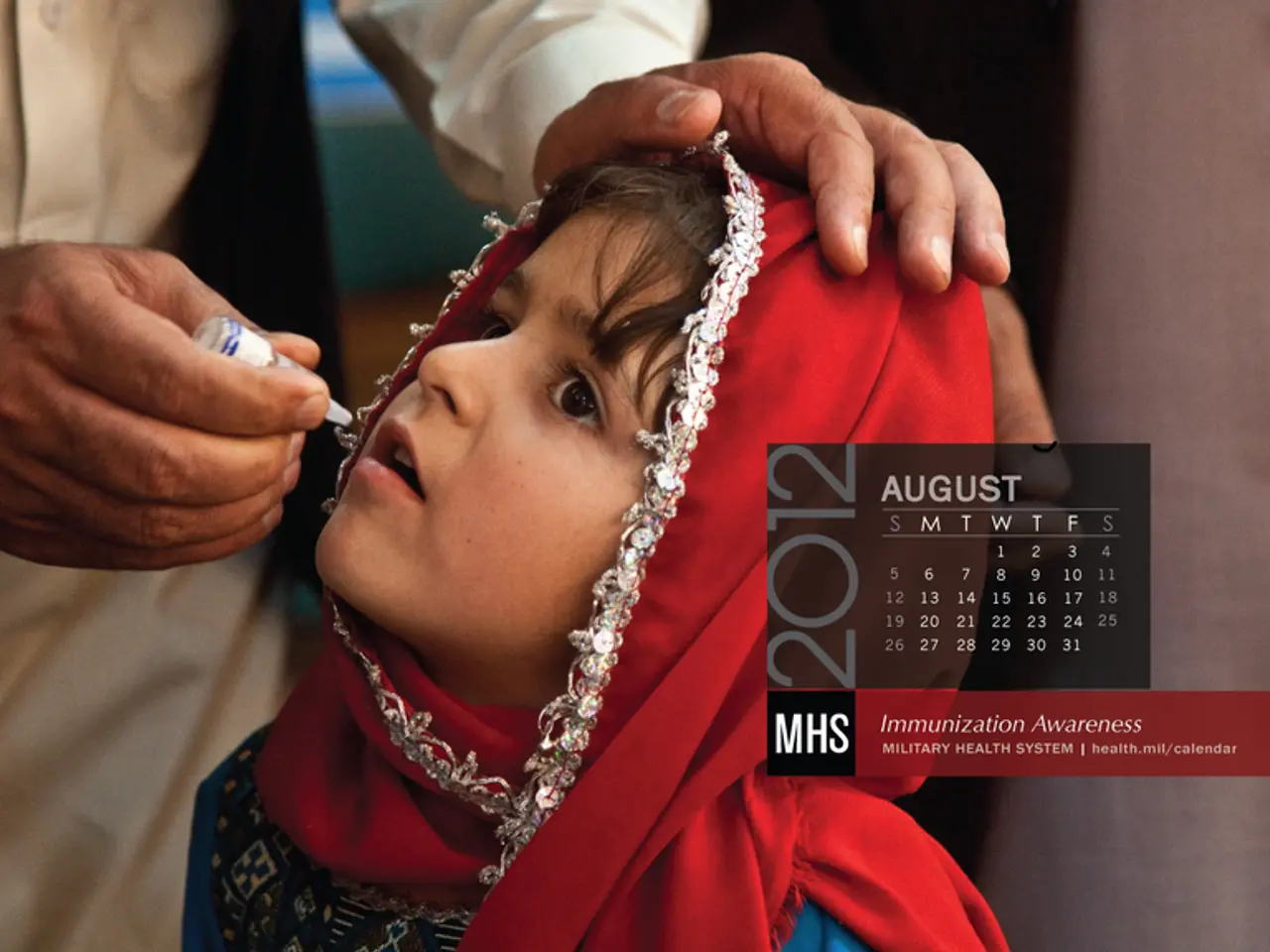Medical professionals confront vaccine skepticism amidst a measles epidemic in Romania
Romania is currently grappling with a resurgence of measles, a highly contagious disease that requires high immunization rates to maintain herd immunity. The low vaccination rate in the country is attributed to several factors, including historical, political, social, and systemic challenges.
Epidemiologist Daniela Gafita often encounters parents hesitant to vaccinate their children in remote villages of northeastern Romania. One such parent, Elena Armenia, refused to vaccinate her youngest child due to reading about a link to autism online, a misconception refuted by the scientific community.
The lack of trust in authorities and the healthcare system is a significant contributor to vaccine scepticism in Romania. The country suffers from an underfunded healthcare system and a loss of confidence in public institutions after decades of transition following the fall of communism in 1989, during which many healthcare professionals emigrated.
Vaccine shortages and non-mandatory vaccination policies have also hindered consistent immunization coverage. Although vaccines are offered for free, they are not mandatory, and previous shortages have made it difficult to achieve high vaccination rates.
The spread of misinformation and conspiracy theories has further exacerbated the issue. During the COVID-19 pandemic, both Romanian and global public figures promoted or endorsed anti-vaccine rhetoric, adding fuel to the fire. Romania’s far-right political groups exploited anger over pandemic restrictions to promote anti-vaccine beliefs publicly.
Concerns about adverse events, such as rumors linking vaccination to autism, and insufficient healthcare communication have increased hesitancy among parents. Political influence, such as far-right leader George Simion openly advocating for parental freedom to refuse vaccination, has also played a role in shaping public opinion.
These high levels of scepticism have led to lower vaccination rates, allowing measles to resurge in Romania. The country currently has the EU’s lowest vaccination rate at 62 percent, far below the WHO’s recommended 95 percent for effective control.
Efforts to control the outbreak include calls from healthcare professionals and pro-European politicians to restore trust, combat misinformation, and consider stricter measures like mandatory vaccination for schoolchildren to curb the spread. Gafita, a vaccinologist, advocates for tougher nationwide rules, including the need for children to be vaccinated to attend school.
However, family doctor Monica Apostol is less optimistic about Romania’s vaccination rate being boosted soon. Measles cases in Europe hit a 25-year high last year, with Romania being the country most affected, recording 13,000 of the approximately 18,000 cases.
The consequences of low vaccination rates can be severe. Measles can cause fever, respiratory symptoms, and a rash, and can lead to more severe complications like pneumonia, brain inflammation, and death. Romania reported eight fatalities from measles between June 2024 to May 2025, and there have been three deaths in the United States this year.
The United States is currently experiencing its worst measles epidemic in 30 years, partly due to anti-vaccine misinformation on social media. Even US President Donald Trump appointed Robert F. Kennedy Jr, who supports anti-vaccine conspiracy theories, as health secretary.
In summary, Romania’s measles resurgence is largely driven by vaccine scepticism rooted in systemic healthcare challenges, political and social mistrust, misinformation spread especially during the COVID-19 era, and non-mandatory vaccination policies. It is crucial for authorities to address these issues to protect public health and prevent further outbreaks.
- The epaper reported on Romania's health crisis, with the country grappling with a resurgence of measles due to low vaccination rates, a problem attributed to historical, political, social, and systemic challenges.
- Vaccine hesitancy, caused by factors like perceived links between vaccines and medical-conditions such as autism, is one issue health professionals in Romania face when promoting immunization against chronic diseases like measles.
- Fitness-and-exercise, good nutrition, and mental-health are crucial components of a comprehensive health-and-wellness approach – aspects that are even more important for maintaining a strong immune system, lessening the impact of diseases like measles.
- Science has consistently disproven claims that link vaccines to medical issues like autism, but misinformation about vaccines continues to circulate across social media platforms, potentially leading to scepticism about vaccines for chronic-diseases like measles.
- Combating misinformation, restoring trust in authorities and the healthcare system, and considering stricter measures like mandatory vaccination for schoolchildren are key components in efforts to curb the spread of measles and other preventable diseases, such as those included in epaper reports on health and wellness.




